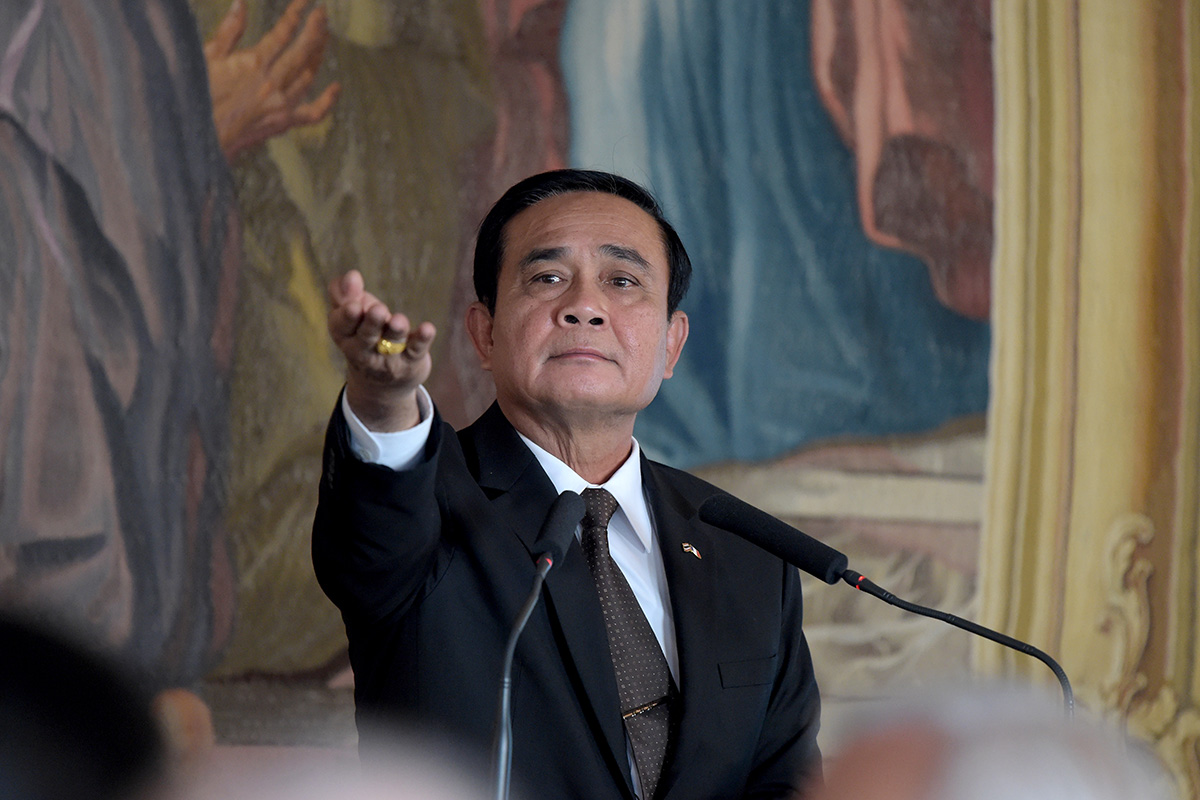Thailand is seeking Chinese investment to help galvanize a five-year, 1.7 trillion-baht (US$51 billion) development plan for its eastern seaboard to bolster the economy.
While political tension has shadowed Chinese investment in nations from Australia to Sri Lanka, the Thai military government views its so-called Eastern Economic Corridor (EEC) project as well placed to link with China’s Belt and Road Initiative (BRI). The corridor’s goals include adding infrastructure and advanced industries, such as biotechnology, robotics and aircraft maintenance, in provinces better known for traditional manufacturing like auto parts.
"China is very important in terms of trade and investment," Prime Minister Prayuth Chan-o-Cha said in an interview in London last month, when asked about the country’s significance for the corridor. "China has the One Belt, One Road policy, which is important - it would create connectivity within the region and throughout the world."
Investment as a proportion of the Thai economy fell after Prayuth seized power in a 2014 coup and lags behind neighbouring nations, International Monetary Fund (IMF) data shows. The government expects the corridor to help close the gap and enacted a law this year offering firms perks such as tax breaks to invest. Challenges include a workforce skills deficit and elections due next year in a country with a history of unrest and military intervention after polls.
The five-year plan for the corridor covers 2017 to 2021 and spans the provinces of Rayong, Chachoengsao and Chonburi, which Thailand says are well located for trade links to other Asian nations.
China’s Alibaba Group Holding Ltd. is one of the highest profile investors so far, pledging about US$350 million to build a distribution hub in the region. The value of foreign direct investment applications from China approved by Thailand, for the corridor and beyond, jumped almost 1,500 percent in January through March from a year ago to 14 billion baht.
The government is courting investment from other nations too. That includes Japan, traditionally the top industrial investor in Thailand, as well as Europe and the United States (US). Airbus SE last month signed a joint venture agreement with Thai Airways International Pcl to construct an aircraft maintenance, repair and overhaul facility in the corridor.
"Japan and Europe have been the major players for more than 30 years," said Kanit Sangsubhan, the secretary general of the EEC office in Bangkok. "Chinese investors can play a bigger role in EEC development in the future. The EEC will be a balancing ground for investment."
Will the plan work?
Thai gross domestic product (GDP) growth reached a five-year high of 4.8 percent in the first quarter but remains slower than in Indonesia, Malaysia and Vietnam.
The corridor shouldn’t be viewed as a panacea for Thailand’s economic ills, said Pavida Pananond, an associate professor at Thammasat Business School in Bangkok.
"To engage in more advanced industries, investors need more sophisticated inputs, such as skilled labour, an efficient public sector and transparency in business operations," she said. "All these require longer term development and cannot simply be ordered from top-down law and regulation."
The EEC is linked to the military government’s 20-year national strategy, which the generals expect will guide policy makers in future, potentially setting up flash-points with civilian administrations that wish to adopt different priorities.
"We need to find new industries in high technology to enhance the overall competitiveness of the country," Finance Minister Apisak Tantivorawong said in an interview. "This is a key project and will be the biggest driver for Thailand’s economic development for years to come." - Bloomberg
